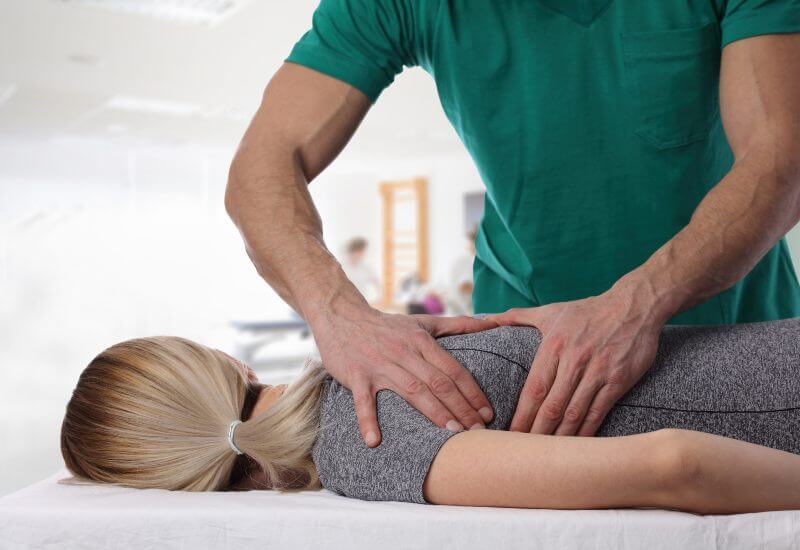Athletes, fitness enthusiasts, and even those leading active lifestyles are increasingly turning to sports massage as part of their health routine. In fact, many people choose Leeds sports massage to help keep their bodies resilient against strains, aches, and long-term wear. Sports massage is more than just a treatment for existing injuries—it is a proactive approach to maintaining health, enhancing performance, and ensuring the body can cope with the demands of daily movement and exercise.
What is Sports Massage?
Sports massage is a targeted form of therapy that focuses on muscles, tendons, and connective tissues. Unlike a general relaxation massage, it is designed to address areas under strain, reduce tension, and promote quicker recovery. Techniques often involve deep tissue pressure, stretching, and mobilisation of soft tissues, all of which help to improve circulation and flexibility.
By working on muscles that are frequently used or overstressed, sports massage helps correct imbalances, release built-up tension, and prepare the body for physical activity.
Supporting Injury Prevention
One of the key benefits of sports massage lies in its ability to reduce the risk of injuries. Repetitive motion, heavy training, or even poor posture at work can lead to muscle tightness and restricted movement. When this happens, joints and tissues are more vulnerable to strains, sprains, and overuse injuries.
Sports massage addresses these issues before they escalate by:
- Increasing flexibility and range of motion
- Improving circulation for quicker recovery
- Breaking down adhesions or scar tissue
- Reducing muscle fatigue and soreness
By keeping the body balanced and mobile, massage helps prevent injuries that often arise from stiffness and overuse.
Long-Term Health Benefits
Sports massage does not just benefit athletes preparing for competition. Its long-term health effects are relevant to anyone who values mobility and wellness. Regular treatments can contribute to:
- Improved posture: By loosening tight muscles, it helps reduce postural imbalances that can cause chronic pain.
- Better sleep quality: Releasing muscle tension promotes relaxation and reduces stress.
- Reduced risk of chronic conditions: Ongoing stiffness and poor circulation can lead to problems such as back pain, joint discomfort, or repetitive strain injuries. Massage works as a preventative measure.
- Mental well-being: The physical relaxation also supports mental clarity, stress management, and emotional resilience.
When combined with other healthy lifestyle practices—such as stretching, strength training, and proper nutrition—sports massage can be an effective foundation for long-term health.
The Role of Sports Massage in Recovery
After strenuous exercise or competition, the body requires time and support to recover. Sports massage accelerates this process by flushing out toxins, easing soreness, and encouraging the repair of tissues. This means athletes or gym-goers can return to training faster with less risk of aggravating minor strains.
For everyday individuals, recovery from long working hours or repetitive tasks at a desk can also be aided by massage, making it a versatile tool for both professional and casual lifestyles.
Sports Massage in Leeds
In Leeds, sports massage has become an essential service for both amateur athletes and those who simply want to maintain their physical health. The city has a thriving fitness community, with gyms, sports clubs, and wellness centres all recognising the importance of recovery and prevention strategies.
Local practitioners often offer personalised sessions tailored to specific needs—whether for runners training on the city’s scenic trails, office workers experiencing neck and shoulder tension, or football players aiming to stay injury-free. The accessibility of skilled therapists in Leeds ensures that individuals can incorporate massage into their regular routines with ease.
Why Consider Sports Massage for Everyday Life
While professional athletes often highlight the benefits of sports massage, its value extends to anyone managing physical strain. Whether lifting heavy loads, sitting for long periods, or balancing a busy lifestyle, most people can benefit from its preventative and restorative qualities.
By addressing minor discomfort before it grows into something more serious, sports massage encourages a proactive approach to health—helping people remain active, mobile, and pain-free well into later life.
Conclusion
Sports massage is more than a luxury—it is an effective approach to injury prevention and long-term health maintenance. From reducing muscle tension and improving circulation to supporting recovery and enhancing mobility, its benefits are far-reaching. With accessible options such as sports massage, individuals can take advantage of tailored therapies that suit their activity levels and personal needs.
By integrating sports massage into a balanced lifestyle, people can protect themselves against common injuries, recover faster, and enjoy improved overall health for years to come.

